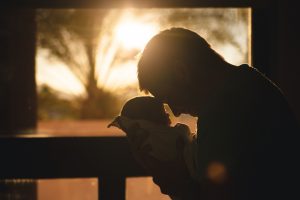Austrian intestate succession: Who inherits without a will in Austria?
Austrian intestate succession: Who inherits without a will in Austria?
Intestate succession in Austria: Who inherits without a will? ![]()
The deceased (also known as the testator) can determine who his or her heirs are by making a will. This is also called testamentary succession.
If there is no will, then the law determines who inherits. This order of succession provided for by law is called intestate succession. One could also speak of succession without a will.
What is the intestate succession in Austria?
What is the intestate succession in Austria?
Who belongs to the legal heirs at all?
If someone has been legally disinherited or is unworthy to inherit due to special circumstances, he or she cannot be a legal heir.

Apart from this, relatives are initially eligible as heirs.
The law provides for a certain order of succession for relatives. For this purpose, the law divides the relatives into four groups. The following applies to the inheritance quotas: Within a group, everyone gets the same share. If, for example, there are three relatives entitled to inherit in a group, each receives one third.
In addition to the relatives, the spouse (i.e. wife or husband) or the partner of a registered partnership (registered partner) also inherits.
The estate, i.e. the assets of the deceased person, is divided between the spouse/registered partner and the relatives. The proportions in which this division takes place depend on which group of relatives comes into play.
First group of heirs in Austria: children, grandchildren, great-grandchildren, etc.
First group of heirs in Austria: children, grandchildren, great-grandchildren, etc.
First in the order of inheritance in Austria are children and children’s children. These are the daughters and sons, grandchildren, great-grandchildren, great-great-grandchildren, etc.
If there are only children, but no grandchildren, great-grandchildren, etc., Austrian intestate succession is very easy.
The assets are divided among the children.
When there are also grandchildren, great-grandchildren, etc:
Rule 1: As long as a child is alive, his or her own children, i.e. grandchildren, are not eligible.
This also applies “further down”:
- According to the legal succession, great-grandchildren only inherit when their ancestors, i.e. the grandchildren and children of the deceased person, are no longer alive. Living parents exclude their own children as heirs at every level.
- Conversely: If a child is already deceased, his or her own children, i.e. the grandchildren, take his or her place (representation).
This also applies “all the way down”:
If the son and grandchildren are already deceased, but there is a great-grandchild, then the great-grandchild takes the place of the grandchildren and the daughter.
So at each level the following 2nd rule applies: Children take the place of their parents who have already died.
With these two rules, one can clarify the heirs for each “tribe”:
- Example
The deceased had two children:
The first daughter is already deceased. This daughter had a son, who was therefore the grandson of the deceased. However, this grandson is also already deceased. He himself had two children, the great-grandchildren of the deceased.
The second daughter of the deceased is still alive and has two children.
Half of the estate goes to the second, still living daughter. Their children receive nothing.
The second half would go to the first daughter, who is already deceased. Her descendants take her place. Although her own son is also pre-deceased, his children take his place. The second half thus moves “down” along the first daughter’s “trunk” and is divided between the still living descendants. The two great-grandchildren thus receive half of this half, thus one quarter each.
Intestate succession in Austria: Do adopted children also inherit?
Yes. In general, one can say: Adopted children inherit in the same way as natural children.
In addition, they can also be heirs of their natural parents. Adopted children can therefore inherit twice: After their adoptive parents and after their natural parents.
However, this only applies in the relationship between adoptive parents and adoptive children. Adoptive children do not inherit anything from “adoptive grandparents” unless there is a corresponding will.
Conversely, adoptive parents generally displace birth parents as heirs. In detail, however, some questions are disputed here and must be examined in each individual case.
Second group of heirs in Austria: parents, siblings, nieces and nephews
Second group of heirs in Austria: parents, siblings, nieces and nephews
If there are no direct descendants (children, grandchildren, great-grandchildren, etc.), Austrian intestate succession stipulates that the parents will be the heirs. In this case, each parent receives one half of the estate.
If the parents are already deceased, their descendants take their place. This is called representation. The next in line of succession are then the siblings (or nieces and nephews etc.) of the deceased person.
If only one parent, for example the father, is deceased and there are no living descendants to take his place, then the father’s half also goes to the mother. This is called accrual. Accrual therefore only occurs when representation is not possible because the deceased parent has no descendants.
Third group of heirs in Austria: grandparents, uncles/aunts, cousins
Third group of heirs in Austria: grandparents, uncles/aunts, cousins
If there is no one from the second group of heirs, i.e. neither parents, siblings nor their descendants, Austrian intestate succession stipulates that the grandparents are the legal heirs.
The division corresponds to the system in the second group of heirs:
The grandparents share the estate. Each grandmother and grandfather therefore receives a quarter:
Grandparents who are already deceased are represented by their descendants, i.e. uncles/aunts, cousins etc. of the deceased person.
If a grandparent has died without living descendants, his or her share goes to the other grandparent on “his or her” side, i.e. either maternal or paternal:
Fourth group of heirs in Austria: (Only) great-grandparents
Fourth group of heirs in Austria: (Only) great-grandparents
If there is no one from the third group of heirs, i.e. no grandparents and also no descendants of the grandparents (in particular therefore no aunts, uncles, cousins), the great-grandparents inherit.
In this case, the estate is only divided among the still living great-grandparents. If any great-grandparents are predeceased, their share goes to the other great-grandparents.
Descendants of great-grandparents, however, no longer take their place at this stage.
Austrian intestate succession: What does the spouse or registered partner inherit?
Austrian intestate succession: What does the spouse or registered partner inherit?
As already mentioned, according to Austrian intestate succession, the spouse/registered partner also inherits (subsequently, the registered partner is always included when talking about the spouse).
How much the spouse inherits depends on which relatives come into play in addition to the spouse:
The deceased leaves children: In addition to the first group of heirs (children, grandchildren, great-grandchildren, etc.), the spouse receives one third:
The deceased leaves no children: If the deceased was married (or in a registered partnership) but had no children, the following applies:
- In addition to the parents of the deceased, the spouse receives two-thirds. One third goes to the parents, i.e. one sixth to each parent:
- If one parent, for example the mother, is already deceased, this part also goes to the spouse. In this case, it does not go to the father who is still alive:
- In all other cases, i.e. if there are no descendants of the deceased and, moreover, both parents are already pre-deceased, the spouse inherits everything. The siblings of the deceased are therefore no longer eligible if there is a spouse.
In addition, the spouse also receives the so-called statutory advance bequest: On the one hand, this is the movable property belonging to the previous household, i.e. furniture, crockery, etc. On the other hand, this advance bequest includes the right to continue to occupy the previous marital home if the ownership or the rights of use or tenancy fall into the estate.
- Practical tip
 Divorced persons no longer have a legal right to inheritance. Under certain circumstances, however, the right to inherit is lost even during ongoing divorce proceedings. This is because if there is a will in favour of the spouse, it is considered revoked by the initiation of divorce proceedings, unless the will says otherwise.
Divorced persons no longer have a legal right to inheritance. Under certain circumstances, however, the right to inherit is lost even during ongoing divorce proceedings. This is because if there is a will in favour of the spouse, it is considered revoked by the initiation of divorce proceedings, unless the will says otherwise.
Therefore, when initiating and conducting divorce proceedings, also check the effects on inheritance law, especially on a will.
Austrian intestate succession: What about the unmarried partner?
Austrian intestate succession: What about the unmarried partner?
According to intestate succession applicable in Austria, unmarried partners only have a so-calles extraordinary right of inheritance. Only if there is no legal heir at all (i.e. no relatives) can they inherit something.
Even this, however, usually only applies if the partners have previously lived in the same household for at least three years.
Partners may also be entitled to a statutory advance bequest. However, they can only continue to use the flat previously shared with the deceased person and the things in it for one year.
- Practical tip
Anyone who wants to bequeath something to their unmarried partner should therefore draw up a will.
What if some heirs have already received gifts before?
What if some heirs have already received gifts before?
If heirs have already received gifts from the deceased person, they must allow these to be taken into account under certain conditions. You can find the details here.
Austrian intestate succession: What if there are no heirs at all and no partner either?
Austrian intestate succession: What if there are no heirs at all and no partner either?
If there is no will, no legal heirs and also no partner, only two variants remain under Austrian intestate succession:
- If the deceased person has not appointed anyone as heir, but has bequeathed individual items to certain persons (bequest or legacy), then these persons receive the estate. Example: The deceased did not appoint anyone as heir and also did not appoint any relatives. However, she has bequeathed her favourite watch to her best friend. The best friend receives the entire estate because there is no one else.
- If there are no legatees either, then the estate goes to the state. This right of inheritance of the state is called the right of reversion.
Does the carer also get something? What about family carers?
Does the carer also get something? What about family carers?
Austrian intestate succession provides for a care legacy:
BUT: Only persons whom the law expressly defines as a “close person” are eligible. These are
- legal heirs (e.g.: children, grandchildren, parents, siblings, aunts, nieces, nephews,…);
- the partners of legal heirs (e.g.: son-in-law and daughter-in-law) and their children (i.e. also stepson or stepdaughter); and
- the partner of the deceased person.
In short, only certain relatives can receive a legal care legacy.
If, on the other hand, the carer, who is not a relative, is to inherit something, then a will must be drawn up.
But relatives also only receive a statutory care legacy if the care is
- gratuitous
- not merely marginal (as a rule at least 20 hours per month) and
- for at least six months during the last three years before the death of the deceased person.
Professional nursing care is not a prerequisite. Other care and assistance services may also suffice. The amount of the care legacy depends on the respective circumstances and must be examined in each individual case.
I have cared for someone without being a relative. Do I also get something under Austrian law?
I have cared for someone without being a relative. Do I also get something under Austrian law?
Anyone who is not considered a “close person” (see above) does not receive a statutory care legacy.
Under certain circumstances, however, other persons who have cared for the deceased person can also make claims. This usually concerns cases in which it was recognisably trusted that one would be appointed as heir. Such constellations are often difficult to classify and must be carefully examined.
What happens to the joint condominium under Austrian law?
What happens to the joint condominium under Austrian law?
Any more questions on Austrian inheritance law?
Inheritance law is our passion. We are your inheritance lawyer for Austria.
We listen and tell you whether we can assist or not. You will not be surprised by any unexpected costs, we will inform you of any costs incurred in good time.
Was this helpful?
We are pleased to receive your google rating. Help us to remain visible and provide useful information on Austrian inheritance law.
